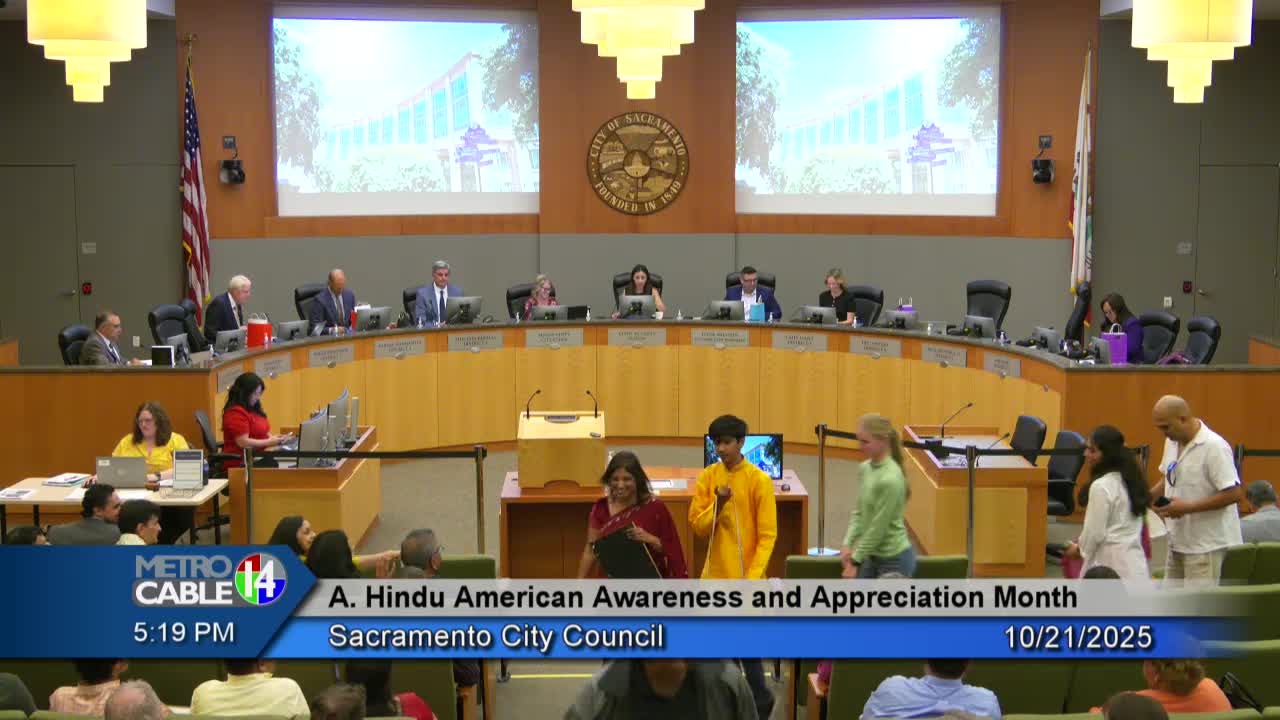Council recognizes Digital Inclusion Week; city reports thousands of devices distributed and $38.7 million last‑mile grant
Get AI-powered insights, summaries, and transcripts
Subscribe
Summary
City staff and partners honored Digital Inclusion Week and told the council the city has distributed thousands of devices and received a $38.7 million last‑mile grant to extend fiber to about 2,700 underserved locations, a project city staff said will benefit roughly 43,000 residents.
The Sacramento City Council on Tuesday recognized Digital Inclusion Week and heard city staff and partner organizations outline programs meant to expand internet access, distribute devices and provide digital skills training for residents.
City information technology staff and nonprofit partners said the city has distributed more than 4,000 laptops, 2,400 hotspots and 240 tablets to residents and students, delivered digital literacy training to more than 300 residents in Title I schools, and run STEM workshops engaging about 800 children. IT department staff told the council the city was awarded $38,700,000 for a last‑mile connectivity project designed to extend high‑speed fiber to approximately 2,700 underserved locations and benefit about 43,000 residents, 93% of whom staff said live in low‑income areas.
Why it matters: Access to reliable internet and devices affects education, job search and access to government services. Council members and presenters framed the work as an equity issue highlighted during the pandemic.
Presentations and partner remarks
Natasha Greer, a program specialist in the city’s IT department, described device and Wi‑Fi work the department has led and said the programs changed lives. “It’s incredibly rewarding to see how technology access can change lives,” Greer said, reading a note from a Sacramento State student who received a technology kit.
Representing Valley Vision, Nafri (Nabri) Hundal described regional digital equity initiatives and support for digital navigator programs. Valley Vision staff said the organization supports two digital navigator programs, the Connecting Minorities pilot led by Sacramento State that serves Lemon Hill and has delivered digital skills training to more than 3,000 participants, and the AB 617 Communities Empowerment Initiative managed by the California Emerging Technology Fund to help residents enroll in low‑cost internet programs.
Council reaction and next steps
Council members thanked staff and partners for the device distribution and connectivity funding. Staff said the last‑mile project is under way and that IT and partner organizations will continue training and distribution efforts. Valley Vision and city staff said further outreach will target low‑income neighborhoods and Title I schools.
Ending
Council members praised the partnerships behind the work and directed staff to continue reporting on deployment of the last‑mile project and on program outcomes for device distribution and digital training.
